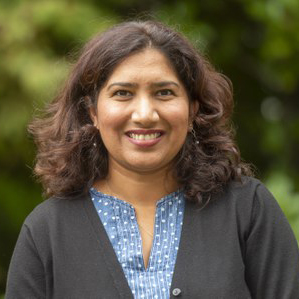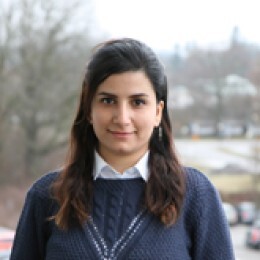PhD students
Showcasing the work of IILME affiliated PhD students
Ayesha Hussain, Bonn Centre for Dependency and Slavery Studies, Germany
Asymmetrical dependencies among Pakistani migrants in Italy’s informal labor sector: The role of Social Capital
My research is looking at the micro and meso-level structures of migration including families, ethnic networks, and diasporas focusing on the mobilization of social capital of networks, particularly within the informal labor sector in Italy. The focus is to see how within the structures of informal labor markets in Italy, dependencies are created among migrants particularly when new migrants are working within the ethnic niches of former migrants or gets jobs through their referrals. Also, it aims to see what kind of hierarchies and power structures exist within networks of ethnic migrants in these situations and whether they can still be called social capital.

Könül Jafarova, University of Wrocław, Poland
Meritocracy and migration in semi-peripheries: Occupational careers of migrants from Azerbaijan and Georgia in Poland
Könül’s study focuses on how meritocratic and non-meritocratic determinants contribute to the occupational careers of migrants from Azerbaijan and Georgia, by exploring the capitals they bring and their use on the Polish labor market. She explores the issue within the framework of the characteristics of semi-peripheral labor markets, and employs biographical narrative interviews to build a better understanding on the overall political, social and cultural contexts that drive migrants to pursue certain career trajectory.
Samaneh Khaef, Stockholm University, Sweden
Educational trajectories of migrants in Sweden and its spatiality
Keywords of PhD research:
Human capital sorting
Educational trajectories
Labor market performance
Initial residential settlement
Educational registers
Post-migration education

Johanna Ullmann, University Osnabrück, Institute for Migration Research and Intercultural Studies (IMIS), Germany
Labor-market integration of refugee women in Germany
Qualitative-empirical analysis of labor market integration projects for refugee women in post-2015 Germany from a comparative, intersectional and organizational perspective. The PhD is part of the research project “Is there a male bias in the early labor market integration of refugee women?” in the framework of the joint research project “Gender, forced migration, politics of reception: Processes of gendered inclusion and exclusion in Lower Saxony” of University Osnabrück, Göttingen, and Oldenburg in Germany and funded by the Lower Saxony Ministry of Science and Culture from 2017 to 2020 (www.gender-flucht.uni-osnabrueck.de).

Karen Ravn Vestergaard, Malmö Institute for Studies of Migration, Diversity, and Welfare (MIM), Department of Global Political Studies, Malmö University, Sweden
Organising with or against Formations of Migrant Labour? Challenges and New Directions for Labour Movements in Denmark and Beyond
This PhD project examines formations of migrant labour in the context of collective actions and (challenges of) shaping alliances across labour market segmentations from a multi-scalar perspective. It primarily focuses on strategies and efforts employed by Danish trade unions when organising around migrant labour, here approached as not only involving migrant workers, but additionally as labour relations generally involving conditions of precariousness, temporariness, displacement, and/or low wages. As such, the project takes place in the context of the ‘Danish model’, referring to the historically central role of collective bargaining in the national regulatory framework, which is challenged by decentralization, the intensification of EU’s internal market, and by novel forms of precarious labour relations and labour market segmentations along racial, ethnic, and gendered lines.